There are many essential minerals needed for maintaining optimal nutrition or improving your overall health and well-being. I'm sharing the 16 essential minerals you need to keep yourself functioning at peak performance every day and what foods to eat to pack in the nutrients!
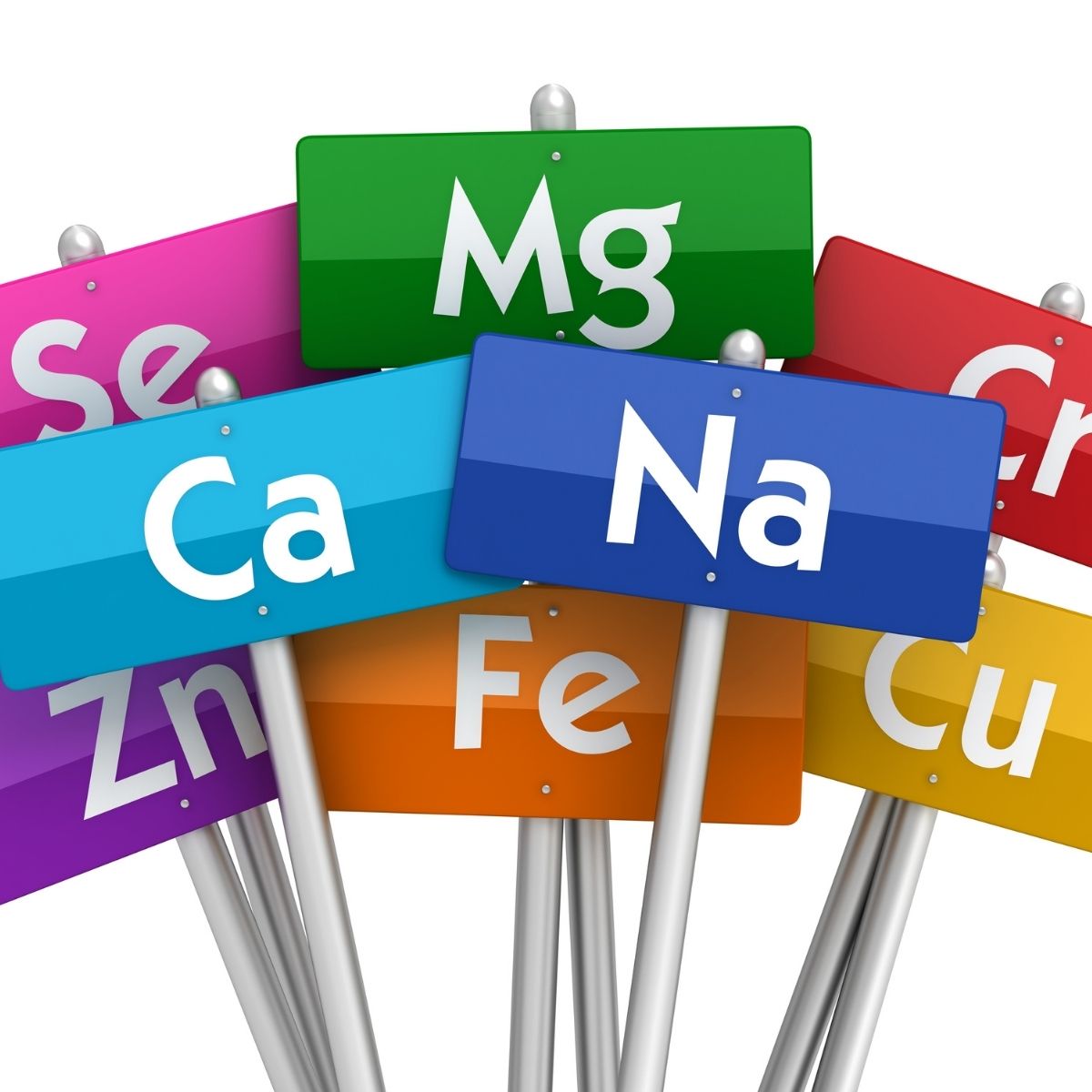
You may have heard of essential minerals, but do you actually know what they are or why they’re important for your body? Some don't just make you feel better but are vital to life! It’s a delicate balance. Too much or too little can completely throw your body out of whack.
Jump to:
What are minerals, and why do you need them?
Many people are familiar with the minerals you read about on a nutrition label or seek out in a multivitamin: vitamin B12, iron, folic acid, etc. However, what we often just call essential minerals are actually a mix of minerals and metals.
But don’t worry, it’s not the beginning of the bionic man or woman.
In fact, these many elements can be broken down into two categories: trace minerals and major minerals. They are tiny elements needed to live healthy lives that aren’t made in the body but that come from external sources.
They’re responsible for all kinds of things that keep you functioning properly: normal growth and development, maintaining strong teeth and bones, regulating heat beat, keeping the nervous system working, and more.
Minerals and metals your body needs to function properly.
The first five are needed in the largest amount. They’re also known as electrolytes. As you may recall, after a sweaty workout session, you’re supposed to drink electrolytes. This helps replenish those essential elements.
Those in the second list are only necessary in trace amounts. No mineral accomplishes its purpose by itself. It’s exactly what it sounds like.
Major minerals are used and stored in large quantities, and trace minerals, while important, are only needed in tiny amounts.
Major minerals (electrolytes):
Calcium (Ca)
Role in body: Calcium assists with blood clotting, sending messages through the nerves, muscle contraction, blood pressure regulation, and enzyme activation. It also notably helps build strong bones and teeth.
Symptoms if lacking: Weak bones resulting in easy fractures is often a sign. Brittle nails, confusion or memory loss, muscle cramps, tingling in face and extremities, seizures, etc. can all be signs.
Older adults, women, and people who don’t eat much dairy are most at risk of deficiency.
How to get calcium in your diet: Dairy products are an easy source of calcium. Leafy greens (kale, collards, mustard and turnip greens, bok choy, etc.), fortified plant-based milks, broccoli, winter squash, edamame, seeds (chia, poppy, and sesame), beans and lentils, sardines, and tofu made with calcium sulfate are all great options.
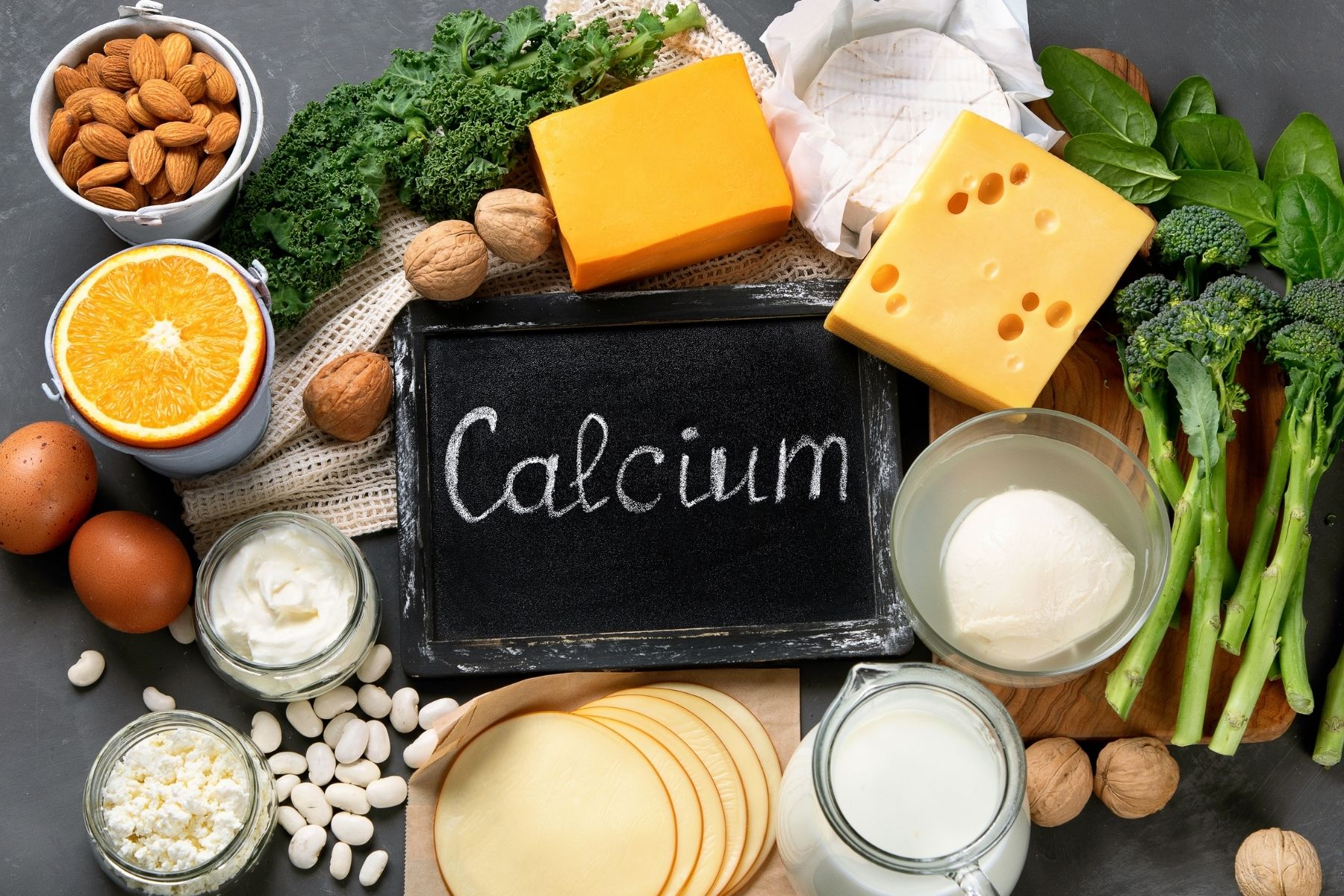
Phosphorus (P)
Role in body: Phosphorus helps out the kidneys, filtering waste and playing a role in using and storing energy. It can also decrease post-workout muscle pain.
Symptoms of deficiency: When you don’t have enough phosphorus in your body, you might experience loss of appetite, bone pain or fragileness, anxiety, joint stiffness, irregular breathing, numbness, irritability, weakness, and weight gain or loss.
How to get phosphorus in your diet: Generally, red meat, poultry, and seafood are all great sources. Vegetarians are more likely to get the majority of their phosphorus from dairy, legumes, and nuts.

Potassium (K)
Role in body: If you’ve ever been an athlete, you might be familiar with potassium’s relevance to sports performance. It does its part to maintain a steady heartbeat, make muscles contract, and balance fluids in the body.
After a hard workout, consuming a banana can reduce muscle soreness and replace some of the potassium lost through sweat. Potassium can also be good for bones and blood pressure.
Symptoms of deficiency: Low on potassium? You may experience constipation, fatigue, muscle spasms or cramps, feelings of heart palpitations, and weakness. Sometimes you may even feel tingling and numbness.
How to get potassium in your diet: You can get your potassium from raisins, bananas, baked potatoes with the skin on, tomatoes, yogurt, black beans, and spinach.

Sodium (Na)
Role in body: Sodium aids nerve impulses, muscle contraction, and the balancing of fluids, particularly in and around cells.
Symptoms of deficiency: A reduced level of sodium can cause cells to swell and present symptoms such as headaches, fatigue, restlessness and irritability, and muscle spasms or cramps.
Serious symptoms that you should consider an emergency include nausea and vomiting, confusion, seizures, or lost consciousness.
How to get sodium in your diet: Sodium is in many things we eat and is often added in the form of table salt. You’re unlikely to be deficient in sodium unless you consume too much water–think of people running marathons–or are taking certain medications.
Bread, cured meats, pizza, soups. Many processed foods are packed with loads of sodium. In most circumstances, Americans should be more concerned with reducing sodium intake, not increasing it.
Magnesium (Mg)
Role in body: Magnesium helps with nerve and muscle function, immune system health, heartbeat and blood glucose regulation (energy production), and bone strength. It also contributes to blood pressure regulation and blood clotting.
Symptoms of deficiency: Loss of appetite, nausea and vomiting, shaking, fatigue and fatigue and weakness, and muscle spasms or cramps are just a few of the signs.
If you’re taking a blood pressure medicine that is a diuretic or people experiencing diarrhea may be most at risk of expelling the magnesium they need to absorb.
How to get magnesium in your diet: Pumpkin and chia seeds, nuts, spinach and other green vegetables, soy milk, black beans, baked potatoes, oatmeal, and bananas are all good sources of this mineral.

Chloride (Cl)
Role in body: Chloride aids in nerve and muscle function, controls the pH balance of blood and water, and moves fluid into and out of cells.
Symptoms of deficiency: When you're low in chloride, you are likely to feel nauseous, weak, fatigued and dehydrated. You could also have diarrhea and vomiting due to fluid loss.
How to get chloride in your diet: Chloride is found in basic table salt (as NaCl) and many vegetables. Foods with higher amounts include tomatoes, seaweed, lettuce, celery, and olives.

Sulfur (S)
Role in body: Sulfur helps build and repair DNA, protects cells against
damage, and aids in keeping elasticity in your skin.
Symptoms of deficiency: Without enough sulfur, acne, brittle nails and hair, arthritis, convulsions, memory loss, depression, slow wound healing, rashes, etc. can occur. It also makes and recycles glutathione, which is an antioxidant that helps reduce inflammation and prevent cell damage.
How to get sulfur in your diet: Beef, ham, chicken, most fish, soy beans, black beans, almonds, eggs, cheddar cheese, dried peaches, asparagus, broccoli, oats, beer, coconut milk, horseradish, etc.
Trace minerals your body needs:
Zinc (Zn)
Role in body: Zinc is vital for blood clotting, making proteins and DNA, healing wounds by helping in cell division, and boosting the immune system.
Symptoms of deficiency: Someone with low levels of zinc may have stunted growth, impaired immune function, or loss of appetite. In serious cases, hair loss, diarrhea, impotence, weight loss, and delayed healing of wounds can all be present.
How to get zinc in your diet: Meat, shellfish, legumes (chickpeas, lentils, beans, etc.), seeds (hemp, squash, pumpkin, and sesame), nuts, dairy, whole grains, and dark chocolate are all good sources of zinc.

Iodine (I)
Role in body: Iodine helps convert food into energy and keep your thyroid functioning correctly, partly by producing multiple thyroid hormones.
Symptoms of deficiency: Without enough iodine, normal growth and development is hindered, making it especially dangerous for pregnant women. You may also experience under-active thyroid, or hypothyroidism.
Symptoms present as fatigue, weakness, sensitivity to cold, constipation, dry skin or hair, and weight gain. Besides pregnant women, those most at risk include vegans and those living in areas with minimal iodine in the soil (ex. mountainous regions).
How to get iodine in your diet: Nori, cod, canned tuna, shrimp, “iodized” salt, dairy, eggs, chicken, etc.

Iron (Fe)
Role in body: Iron is part of hemoglobin production, the chemical that carries oxygen in the red blood cells, and myoglobin, a protein found in muscle cells. It is vital to certain enzyme activation and making collagen, amino acids, neurotransmitters, and hormones.
Symptoms of deficiency: A lack of enough iron in your body can lead to iron-deficiency anemia, making it hard for the blood to get oxygen to the organs. Fatigue, headaches, pale skin, weakness, lightheadedness, cold hands and feet, brittle nails, etc. can all point to a deficiency.
Menstruating women and obese individuals are most at risk.
How to get iron in your diet: Try getting your daily iron with red meat, cooked soybeans, lentils, pumpkin seeds, ground turkey, and fortified breakfast cereal or bread.
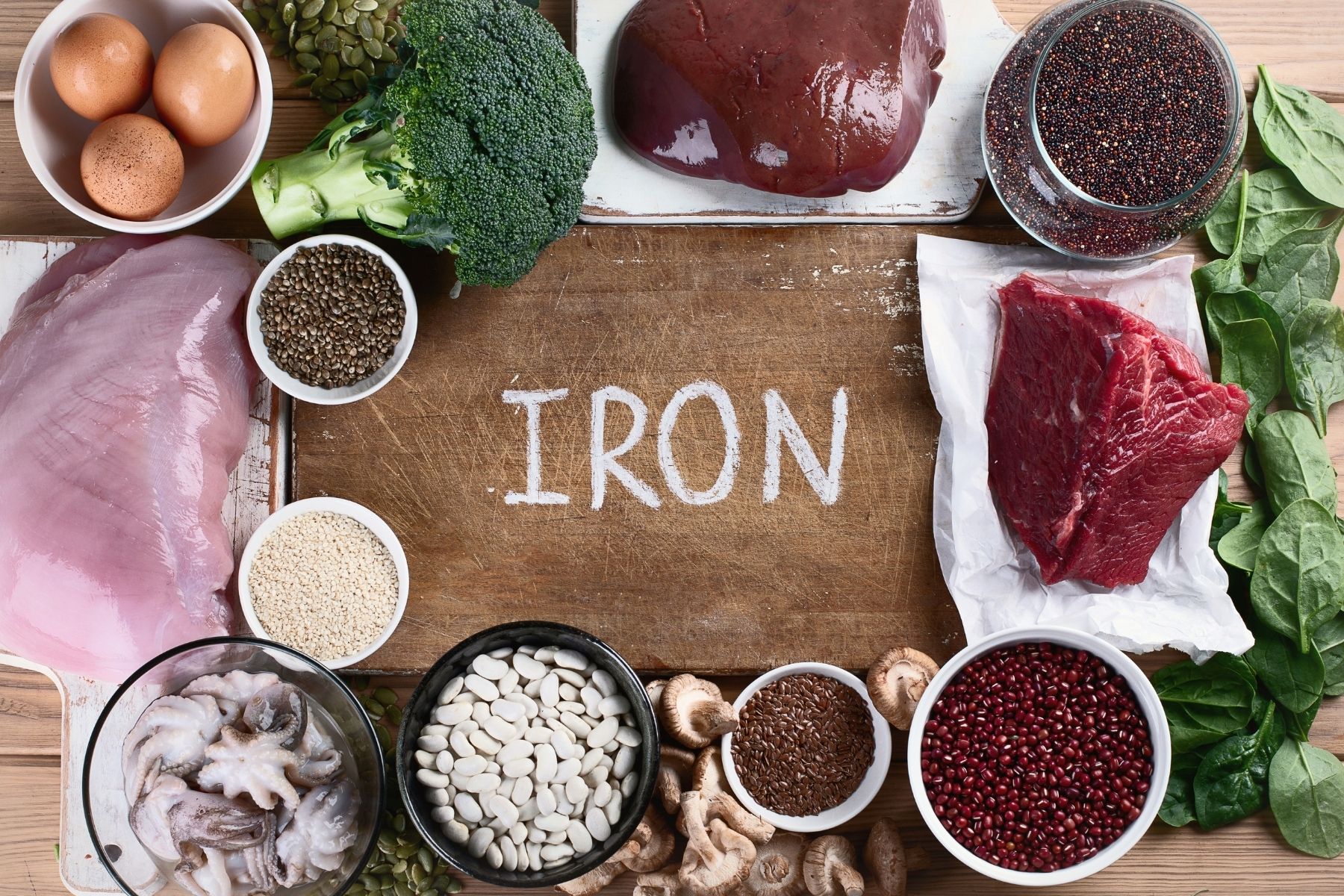
Copper (Cu)
Role in body: Copper helps regulate neurotransmitters, metabolize fuel, make red blood cells, and clean up free radicals.
Symptoms of deficiency: Few people get the full daily recommended amount of copper, but it is still rare to be actually deficient. If you’re experiencing anemia, low body temperature, low white blood cell count, bone fractures and osteoporosis, irregular heartbeat, thyroid issues, or loss of pigment of the skin, this could be a concern.
How to get copper in your diet: Seeds and nuts, wheat-bran cereal, shellfish, whole grain products, organ meats, and chocolate are all good options.

Fluoride (F)
Role in body: Fluoride keeps teeth healthy by preventing decay and aids in the maintenance of strong bones.
Symptoms of deficiency: Cavities are the first sign you need more flouride. Bones may also become brittle causing fractures to occur more easily.
How to get flouride in your diet: Black tea, coffee, shrimp, raisins, oatmeal, grapefruit juice, potatoes, etc. In many places, the tap water is fluoridated, so drinking tap water or eating food made with it leads to an adequate amount. It’s also in most toothpaste varieties sold in the US.
Manganese (Mn)
Role in body: Manganese is essential to the process of forming bones. It also helps metabolize cholesterol, amino acids, and carbs. The metabolization of these things are necessary for wound healing among other functions.
Symptoms of deficiency: When someone is deficient in manganese, they may
experience stunted bone growth or defects, low fertility, abnormal metabolism, and unusual glucose tolerance somewhere between normal and diabetes.
How to get manganese in your diet: Get your daily manganese in whole grains, mussels, oysters, clams, nuts, legumes, rice, leafy vegetables, coffee or tea, and spices like black pepper. Hazelnuts, whole grain foods, pineapple, chickpeas, and spinach are ideal foods to enhance your manganese intake.
Selenium (Se)
Role in body: Selenium is vital to making DNA and preventing cell damage and infections. It is also involved in reproduction and metabolism of thyroid hormones.
Symptoms of deficiency: Nausea and vomiting, headaches, confusion, seizures, lethargy, and coma are all signs you’re not getting enough selenium.
How to get selenium in your diet: Brazil nuts, organ meats, and seafood contain the highest levels of selenium, but you can get plenty of selenium from poultry, red meat, eggs, cereal, and bread.

Chromium (Cr)
Role in body: Chromium is vital to your blood sugar function. It helps maintain normal levels and assists cells as they create energy from it.
Symptoms of deficiency: This is another mineral that is commonly low in our diets but that is rare to have a deficiency large enough that it’s worrisome. Those most likely to have issues are people who do strenuous exercise or eat lots of sugary food, pregnant women, and the elderly.
Symptoms may look similar to those of diabetes, such as weight loss, impaired response to sugar in the blood, neuropathy, fatigue, confusion, and impaired coordination.
How to get chromium in your diet: Sources can vary dramatically depending on the chromium levels in the water and soil used to produce each type of food. Typically, grape juice, ham, whole wheat bread and cereal, brewer’s yeast, spices (ex. black pepper and thyme), and cheese contain some of the greatest amounts.

Molybdenum (Mo)
Role in body: Molybdenum is one of the lesser discussed minerals but is very important. It activates certain enzymes that break down toxins and keeps dangerous sulfites from building up in the body.
Symptoms of deficiency: Most people are getting more than enough molybdenum in their diet. In fact, consuming too much is more of a concern and can lead to gout-like symptoms, reduced growth, kidney failure, infertility, and diarrhea.
How to get it in your diet: If you’re a rare exception who needs to boost their consumption of this mineral, try adding legumes, leafy vegetables, cereal grains, and milk.
You may notice some foods are on multiple lists, and there is a reason for that. Foods like leafy green vegetables and beans are packed with healthy nutrients and should be a common presence on your dinner table. Keep these in mind on your next trip to the grocery store.
Too much or too little?
Some estimates show that nearly 50% of Americans over the age of 18 take a multivitamin. While there can certainly be benefits for certain groups of people, eating a balanced diet is extremely important.
Vitamins alone won’t keep you healthy. Diet not only infuses your body with vitamins and minerals but gives you the fiber, protein, carbs, etc. that help you feel good and function well.
People who don’t get necessary minerals from their food or those with specific medical conditions could find value in these. Women who are pregnant or breastfeeding and people over 50 may also benefit from an extra boost of certain minerals.
However, in general, there’s minimal proof they improve health or help prevent disease.
In fact, you should always talk to your doctor or pharmacist about any vitamin you’re considering taking, because much like a deficiency, an excess of some minerals can actually have adverse effects.
The forms you have to fill out at every office visit aren’t just for show. It’s important your healthcare professionals have this information. For example, too much iron creates free radicals that can accelerate heart and liver disease. Too much calcium can cause kidney stones.
Another thing to consider is that there is no standardization of ingredients in the US. Companies can put any amount of each mineral in their vitamins as they choose, so it’s always important to read the label and make an informed decision.
When in doubt, make your doctor or pharmacist a part of the conversation. They should be well-informed on the topic.
Iron, vitamin A, zinc, niacin, and folate/folic acid can all be damaging in high doses. If your multivitamin is giving you 100% of the recommended daily amount, and you’re getting more of it from your diet, especially with fortified items like certain breakfast cereals and drinks, you may be exceeding the limits of safe quantities.
Be aware taking a multivitamin can also lessen the effectiveness of certain medications, so once again, tell your doctor about any supplements you are taking or are considering taking.
Most people, with a few exceptions, shouldn’t be too worried about hitting their daily targets as long as they are eating a healthy diet with variety. Humans were thriving long before the creation of the first supplements. If you’re having symptoms that you’re concerned about, address them at your next appointment.

Minerals and how they aid in weight loss.
Weight loss can only be achieved by a combination of diet, exercise, and genetics. I repeat, there are no pills or foods that will do this work for you.
Losing weight can be a challenge, and you have to be willing to put in the time and effort. There are, however, some minerals that put your body in a prime position for the process.
So if you want to put your best foot forward, consider ensuring you’re getting the daily recommended amount of the following:
- B vitamins optimize metabolism.
- Vitamin D boosts your immune system.
- Iron and magnesium help your body create energy.
If you’re looking for a way to maximize your health, start by planning your diet around the minerals you need to make your body as rejuvenated as it should be every day!
Exercise is only half the battle when it comes to living your best life. Anything you consume should be moving you closer to your health goals, not further away.
So get out there and make healthy choices! As summer gets closer and closer, more and more seasonal items can be accessed through places like farmers’ markets and local grocers. Maybe you’re even growing your own favorite foods!
Have fun with food. Try different recipes or pick up a vegetable you’ve never tried before. It keeps things interesting and challenges your expectations. Minerals, both essential minerals and trace minerals, are in everything. It’s your job to capture them in some good cooking!

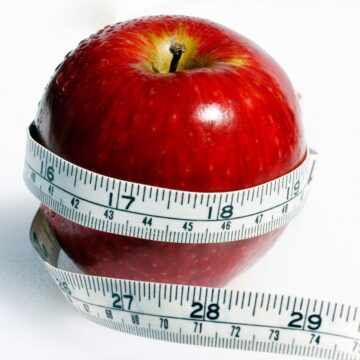

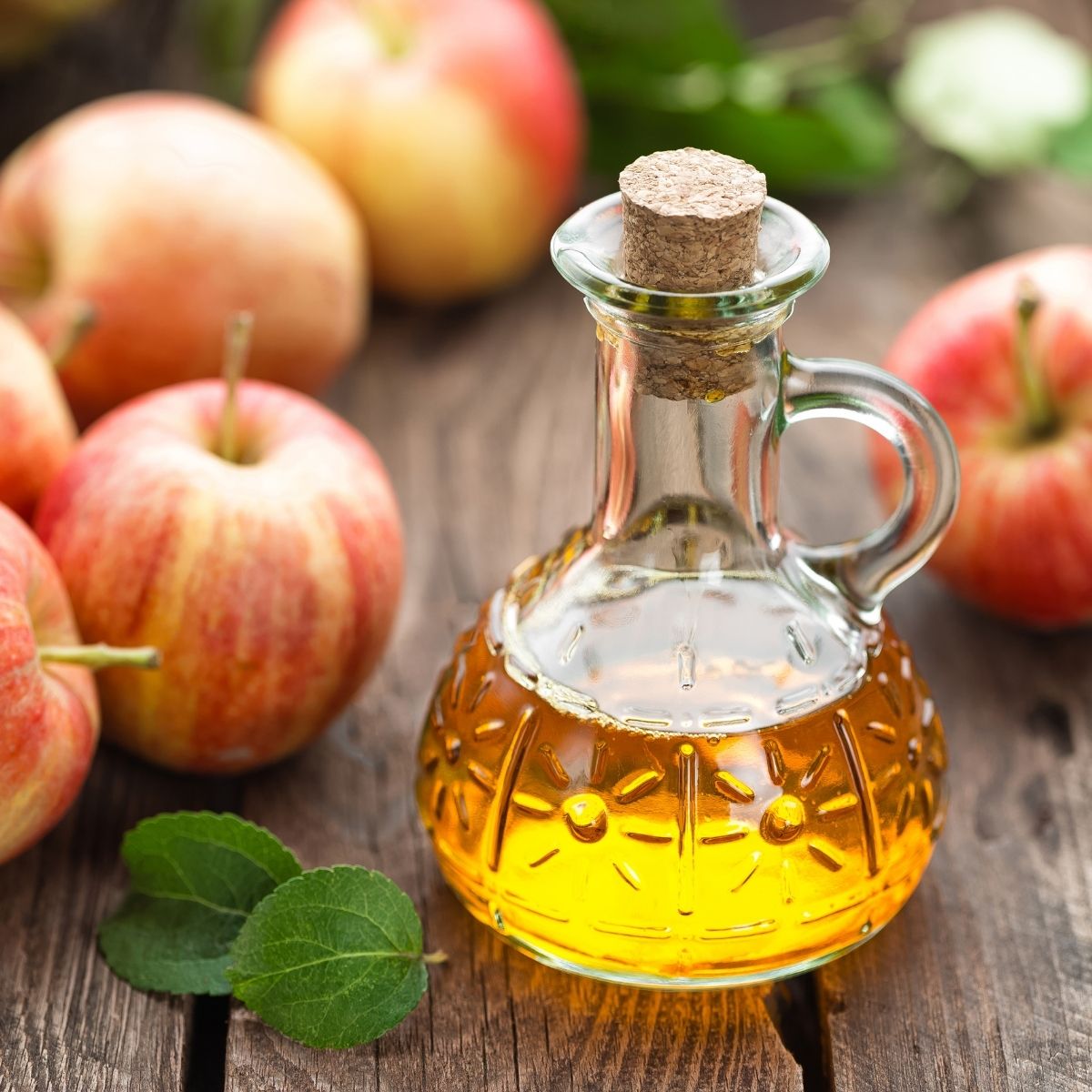

Leave a Reply